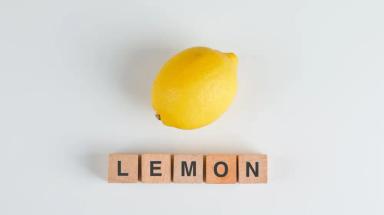Summary
Technical translation is the transformation of technical content such as legal, medical, and information technology content from one language to another. It has specific characteristics and rules that technical translators need to take into consideration. It also has many benefits and advantages and it should always be done by professionals.
What Is Technical Translation?
Technical translation is a type of translation that consists of translating technical content from one language into another. It is used in various fields such as legal, medical, engineering, information technology, and life sciences. It is usually the translation that contains equivalents in the target language. It should always be accurate and there shouldn’t be any changes made in meanings and details.
Get our technical translation services now
Why Technical Translation Is Important?
Technical translation is mandatory for so many reasons and it is becoming more commonly used as the days go by.
Accurate outcomes
Technical translation provides clients with accurate and precise outcomes, since all technical translators are specialized and experienced, and they always aim at providing the most accurate translation.
Spreading information
Technical translation helps with spreading information and having it reach all areas of the world. It has made it easier for everyone to know about all technical topics and contents.
Raising awareness
In some cases, such as in the medical field, technical translation might spread awareness. Whether for cures, treatments, or preventions, technical translation helps with raising awareness and makes it possible for everyone to be well informed and protected.
Enhances communication
Technical translation enhances communication and makes it possible for everyone to have access to all information in this field. In the medical field, for example, medical translation enhances communication between doctors and patients.
Reaching foreign markets
Technical translation helps with making content reach foreign markets and new audiences from all around the world.
Builds global links
As it aims at bringing people together, technical translation helps build global links and relationships. It makes it possible for businesses to expand and grow internationally, as it helps them build global links.
New opportunities
Technical translation opens new doors as it makes room for new chances and opportunities such as partnerships and collaborations.
Mastering Technical Translation: Types & Qualifications of Top Translators
What Is the Advantage of Technical Translation?
Technical translation has many advantages. However, the most important advantage is the accuracy of the outcome it provides. The technical translation should only be done by professionals and experts who are able to convey the same meaning accurately. It also has advantages in the business industry as it helps expand and grow.
What Are the Characteristics of Technical Translation?
When it comes to the characteristics of technical translation, it is fair to say that they are many. Technical translation is different from other types of translation on so many levels.
Technical translation is always accurate. The target text should always be precise and of high accuracy, as there can’t be any modifications. The meaning should be conveyed as is and no information should be missed. Also, technical translation is based on a logical style that is formal at the same time. The formality of the source text should always be conveyed.
Not to mention that it is objective. There shouldn’t be any change in the points of view or perspectives. Plus, it is consistent, the meaning should always be clear and the text should be coherent. Moreover, the technical terms are accurate, clear, and have a single and precise meaning.
Furthermore, technical translation doesn’t contain any errors related to grammar, since it is formal, and there is no room for mistakes, even if they are related to grammar and spelling.
Prescribing Success: The Path to Becoming a Medical Translator
What Is Technical Translation Process?
To deliver a high-quality technical translation, there is a process that leads to the desired outcome.
Analysis
First of all, technical translators read the content and identify its type. This helps them determine the field, tone, and format.
Comprehension
After identifying the field, type, tone, and format, technical translators read the content again to make sure that they understood everything.
Research
Technical translators conduct thorough research to know more about the subject and to find the right equivalents and meanings. They make use of glossaries and dictionaries that are specialized in the technical field they’re translating.
Translate
The translation process begins after having completed the above-mentioned steps. Technical translators begin translating in a quiet place where they can concentrate and focus.
Edit and proofread
Technical translators edit and proofread the translation once it’s done to make sure that the information is correct and that the translation is accurate. Also, this process helps them avoid minor mistakes related to grammar, spelling, typos, and punctuation.
Get our medical translation services now
What Are Technical Translation Rules?
The rules of technical translation should be followed to ensure the outcome one wishes for. Technical translation differs from other types of translation in terms of technicality and terminologies. The first rule of technical translation is to have it done by a professional technical translator who is specialized in the field he/she will be working on.
This guarantees that the outcome will be of high quality, that it will be accurate, and professional, and it doesn’t contain any errors or mistakes. Also, the format of the target document should be the same as the format of the source document.
Not to mention that the terminologies must be accurate and correct, and it might be required to provide readers with an additional explanation if certain terms don’t have equivalents. Furthermore, a professional technical translator should use a reliable source of information whether on the internet or reliable glossaries and dictionaries.
Technical translations shouldn’t contain any missing information, since one simple detail can be very important. No modifications are allowed unless it is required by the client. It should always be accurate and it should be handled by professionals.
Get our medical terms translation now
Technical Translation Examples
The technical field includes many fields such as:
- Architecture
- Health care
- Medical (including pharmaceutical field)
- Legal
- Engineering
- Agriculture
- Chemistry
- Life sciences
- Information technology
- Automotive industry
- Governments
- Manufacturing
- Physics
- Mathematics
- Geography
Get our medical reports translation now
What Are Technical Translation Rates?
When it comes to the costs of technical translation services, they are more expensive than other types of translation. The reason is that they require more time, effort, and research. Also, the rates vary based on the type of technical document and the field as well.
Some technical translation rates are set based on the word count, others on the number of pages, and some based on hours.
On average, it costs anywhere between $0.08 and $0.40 per word. This is based on the type of document, the field, and the expertise of the technical translator.
If the prices were set per page, it might cost between $35 and $70, based on its length (a page can contain between 250-500 words, depending on the format).
As for the hourly rate, you should expect it to be between $40 and $100. This is usually based on the type, field, expertise, and speed of the translator.
Get our engineering translation services now
What Are Technical Translation Documents?
Various documents need technical translation, including:
- Datasheets
- Technical reports (medical or legal reports for example)
- Catalogs
- Patents
- Manuals
- Tutorials
- Scientific papers
- White papers
- Aviation
- Troubleshooting guides
- Maintenance guides
- Technical drawings
- Engineering materials
- Data research
Get our web translation services now
What Is Technical Translation Style?
Technical translation has its own style. First of all, the content should be written formally, not aesthetically, in a way that is similar to the source text. The format of the target language should be the same as the format of the source language.
It should always be accurate, precise, and formal.
Get our app localization services now
Arabic Technical Translation Services
In Arabic, technical translation services might cause problems, since Arabic is considered a hard language and it might not always have the right equivalents. Arabic technical translation needs to be done by professionals who have proven experience that isn’t less than 3 years. They should have useful and reliable glossaries and dictionaries to help them while translating.
Get our Arabic to English - English to Arabic Translation
What Is Technical Scientific Translation?
The technical-scientific translation is one of the many fields of technical translation that typically revolves around the translation of scientific content such as life sciences, chemistry, physics, and even the medical field. It includes many types of documents such as reports, course materials, research papers, articles, blogs, websites, etc.
Technical scientific translation requires deep knowledge of the scientific field and all its complications and complexes. A professional technical scientific translator should be a linguist who is aware of the scientific jargon, and who has enough information in both the source and target language.
Get our scientific translation services now
Can Machine Translation Software Translate Technical Documents?
Machine translation software can translate anything. However, what differs is the quality you will receive. While machine translation can be useful and used in some fields, it is definitely not used in the technical translation field. The reason is that technical translation, in all its fields, requires accuracy and precision. For example, mistakes are allowed in the medical field since they might result in drastic consequences.
For the technical field, human translation and touch are always preferred and are indeed needed, since it takes linguists and experts with years of experience to be able to deliver accurate and precise technical translation. Not to mention that technical translators conduct research on a regular basis to make sure that the translation is correct and that they are using the right equivalents.
Get our legal translation services now
Does Technical Translation Need Localization?
More often than not, technical translation does not require localization. The reason is that there is no room for changes or modifications. It is rather conveyed in the same way and using the same terminologies from one language to another.
However, in rare cases, there are some technical translations that might need localization. Such as articles, campaigns, websites, or research papers that are related to the medical field. Some countries and cultures might use different cures and treatments for the same disease or health problem. For that reason, it is better to have everything adapted to the target audiences so that they clearly understand what is being mentioned.
Also, some legal content might need localization in terms of laws, rules, and regulations of the target audiences, so they get a bigger picture and understand what is being said.
Nevertheless, it is important to mention that accuracy is always needed in technical translation and that even though some might need localization, the information, and all details should be reserved. In technical translation, accuracy is all that matters and only professionals will be able to convey the exact same meaning from one language to another, using the right equivalents and terminologies.
Get our localization services now Upload your file now and watch it seamlessly transform into any language of your choice!






